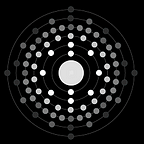Running After the Facts
31 years ago, I was glued to my TV screen watching the first bombs falling on Baghdad. It was on CNN. And it gave a new meaning to “live reporting”. Today, concerned by the war in Ukraine, I watch live streaming from Kiev and frontline combat videos uploaded a few hours after the event. Events and information come to me in real time. Yet, it is not mainstream media, as they cannot give me timely, informed or even strategic updates. I have the impression to live in a fractured timeline. You?
War photography and war reporting really kicked off with Roger Fenton. His pictures immortalised the Crimea War. Among the pictures, one is of the Light Brigade, the troops that charged Russian guns at Balaklava. That picture (bottom of this article) was taken in 1855. The charge itself occurred earlier on the 25th of October 1854. Time for the steamer to cross, it was reported in the London newspapers on the 12th of November 1854. 17 days later.
Today, it can be reported instantly. Except, it is not always the case.
12 hours delay, minimum
When a Chechen “hunter” convoy advertised its presence to try and assassinate President Zelensky, its subsequent destruction was only broadcasted, if at all, 12 hours after the event. On the 3rd of March 2022, more than a hundred Nigerians stormed the embassy of Ukraine in Abuja to volunteer in the war. Sounds important news to me. The first reporting I saw on mainstream media was on the 16th of March.
Is this important? Is it only a matter of editorial choices? Maybe. But in the meantime, we are left to our own devices to make up our own mind.
At the moment, mainstream media do not have their timing nor their voice right. Their time-lag erodes their relevance. Maybe it is a case of adapting their due process? Afterall, videos and reports are there for the taking. Most mainstream media want to qualify their sources. Good. But in the meantime, if you are in “news”, you have to inform your public of the available information. As a bypass, some media (e.g. The Sun UK) seem to have no qualms quoting Reddit.
In my opinion, mainstream media still truly believes that its role is to tell us what to think. They cling to all 3 pillars on which they built their reputation: facts, analysis and opinion. By the time they have all three ready, there is simply less and less people left to listen.
Right timing, right voice
For mainstream media to get their timing and their voice right, they probably have to choose and decouple facts, analysis and opinion. Then specialise or prioritise one, and broadcast this new approach.
For example, if they want to remain relevant references, then we should have seen analyses balancing the Azov battalion fighting on the Ukraine side — rather effectively in Mariupol — and the Wagner battalion supporting the Russian side. The fact that both are acknowledged extreme right outfits could be of interest. Don’t you think?
Until then, the relevance of much of the established media can only dwindle. And so do their capacity to inspire our decisions. Although still debated, Walter Cronkite’s negative report on the Tet offensive in South Vietnam may have precipitated American disengagement in the Vietnam war. Would Wolf Blitzer, the political anchor from CNN, have as much influence on America’s involvement in Ukraine? Doubtful at best.
Between the instantaneous reactions of social media and weekly opinion pieces, there is a space for reasoned expertise, historical and political compass. These must be transparently laid out. There is a tremendous amount of information available, true or faked, sometimes badly framed, with no perspective. There is a need to triage it. Some outlets are ideally placed to do it. However, they cannot at the same time claim neutrality. It will just be continuously showed up.
We still need expertise, timeliness and relevance. Just not through outdated formulas, due processes and an over-reliance on past implicit trust.
More articles on makingnonsenseofit.com
